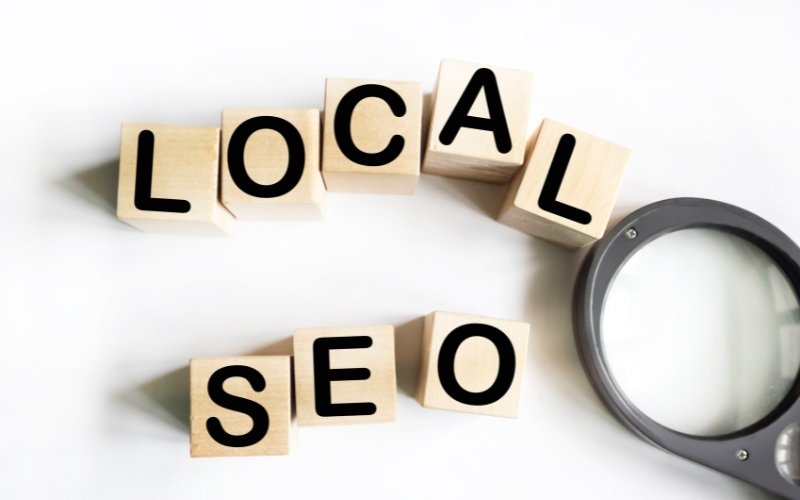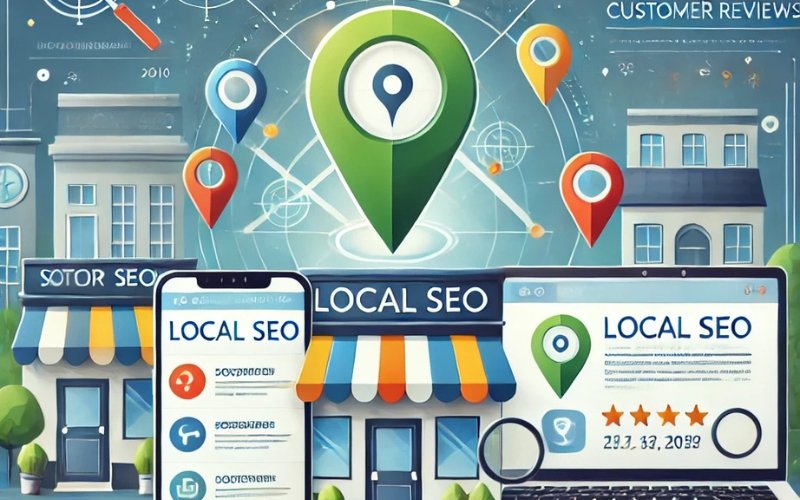Local SEO is essential for many service-based businesses, yet achieving digital success can feel challenging. The key lies in identifying and understanding the obstacles in the way. Recognizing these barriers is the first crucial step in creating an effective SEO strategy to drive traffic, boost visibility, and generate leads. In this article, we’ll explore common barriers local businesses face in SEO and how to overcome them.
Limited Online Presence

For many local businesses, a limited online presence remains one of the most significant hurdles in attracting customers and staying competitive. Often, small businesses either lack a website altogether or have an outdated, poorly designed site that fails to engage visitors or catch the attention of search engines. Without an optimized digital footprint, search engines like Google struggle to understand what the business offers or even where it is located, leading to missed opportunities for connecting with potential customers.
A limited online presence also negatively impacts a business’s ability to compete locally. In today’s digital-first world, customers frequently rely on online searches to discover services or products nearby. Without a strong online foundation, businesses risk being overshadowed by competitors who invest in Local SEO strategies. A robust online presence is no longer optional; it’s a necessity for staying relevant in an increasingly competitive market.
The Role of Local SEO in Building Online Visibility
One of the most effective ways to combat a limited online presence is through Local SEO. This practice involves optimizing a business’s digital properties—such as its website and Google My Business profile—to ensure they rank highly in local search results. Local SEO focuses on helping businesses appear in searches that include location-based terms, such as “near me” or specific city names. For small businesses, this is a game-changer because it allows them to target customers in their immediate vicinity.
Optimizing for Local SEO includes using location-specific keywords, creating content relevant to the local audience, and ensuring that business details like address, phone number, and operating hours are consistent across all platforms. Additionally, customer reviews and local backlinks play a significant role in improving local search rankings. By investing in Local SEO, small businesses can significantly increase their visibility and attract more customers.
Solutions to Enhance Your Online Presence
- Build a Professional Website
Creating a user-friendly, mobile-optimized website is the first step toward establishing a strong online presence. The website should feature clear navigation, engaging content, and SEO-friendly elements like meta tags, alt text for images, and strategically placed keywords. Incorporating Local SEO into the website’s structure ensures that search engines can easily identify the business’s location and offerings. - Leverage Google My Business (GMB)
Google My Business is a powerful tool for improving local visibility. A well-maintained GMB profile that includes accurate business information, high-quality images, and customer reviews boosts a business’s chances of appearing in Google’s local pack and map results. Regularly updating the GMB profile and responding to customer inquiries also signals to Google that the business is active and reliable, further enhancing its Local SEO efforts. - Expand on Social Media Platforms
Social media platforms offer an excellent opportunity for local businesses to engage with their audience. By sharing content that resonates with the local community, businesses can increase their reach and build brand loyalty. When paired with Local SEO, social media can drive more traffic to a business’s website and improve its search engine rankings
Poor SEO Knowledge and Execution

Many local business owners struggle to compete online because of inadequate knowledge and poor execution of search engine optimization (SEO) strategies. This lack of understanding can lead to missed opportunities in attracting local customers, as they may not realize the importance of targeting specific keywords, optimizing their website for search engines, or maintaining consistent online presence. When businesses fail to address these factors, it directly impacts their visibility in local search results, causing them to lose potential customers to competitors who are better optimized.
Local businesses often face challenges such as not knowing how search engines rank content, which factors influence rankings, or how to improve their online presence. For example, a poorly optimized Google Business Profile, inconsistent NAP (Name, Address, Phone number) information, or lack of local citations can significantly hinder their ability to appear in local searches. Additionally, many business owners overlook the value of customer reviews, backlinks from local sources, and properly optimized on-page content, all of which are critical components of Local SEO.
Solution: Building Local SEO Knowledge
The first step toward overcoming poor SEO knowledge is understanding the basics of Local SEO. Local SEO focuses on optimizing a business’s online presence to attract more local customers, ensuring the business appears in relevant searches. Learning the fundamentals, such as keyword research for local terms, creating location-specific content, and optimizing meta tags, can make a significant difference.
For instance, if a business owner runs a bakery in Chicago, using targeted keywords like “best bakery in Chicago” or “fresh bread near me” in website content, titles, and descriptions helps search engines understand the relevance of the business to local customers. Ensuring the business’s Google Business Profile is complete and accurate is another critical step in enhancing Local SEO.
Professional Assistance
Hiring a professional SEO specialist is another effective way to improve Local SEO performance. SEO consultants can audit a business’s online presence, identify weaknesses, and implement strategies tailored to the local market. This includes building local citations, acquiring backlinks from reputable local websites, and ensuring technical SEO elements, such as mobile-friendliness and site speed, are up to par.
Moreover, professionals can guide businesses in managing online reviews, which play a significant role in boosting local rankings. Positive reviews not only improve visibility but also build trust among potential customers. Working with an expert ensures that businesses avoid common mistakes, such as keyword stuffing, over-optimization, or neglecting user experience.
By focusing on improving their Local SEO, businesses can enhance their online presence, attract local customers, and stay ahead of competitors in their area. Whether through self-education or professional assistance, prioritizing Local SEO is crucial for sustained growth in today’s digital-first marketplace.
High Competition in Local Markets
Local service-based businesses often operate in competitive markets where other businesses are already leveraging SEO strategies. Competing against well-established companies with strong SEO campaigns can feel overwhelming for smaller businesses with limited resources.
Solution: While competing with bigger businesses may seem daunting, smaller companies can carve out their niche by focusing on long-tail keywords and highly localized content. These keywords are specific phrases that are less competitive but still attract qualified leads. Additionally, local businesses can emphasize their unique selling propositions (USPs) to stand out in their community.
Lack of Customer Reviews and Social Proof

Customer reviews play a significant role in local SEO rankings. Businesses that don’t actively collect or showcase reviews often miss out on valuable ranking signals and credibility boosts. Search engines prioritize businesses that demonstrate a strong connection with their community, and reviews are an essential part of this.
Solution: Encouraging satisfied customers to leave reviews on platforms like Google My Business or Yelp is key to building trust and improving search rankings. Responding to reviews, both positive and negative, also demonstrates engagement and adds a layer of authenticity to the business.
Inconsistent NAP Information
For local businesses, having consistent NAP (Name, Address, Phone Number) information across the web is essential for local SEO success. Inconsistent listings can confuse search engines, which may lower the business’s search rankings and reduce visibility.
Solution: To ensure search engines can easily verify the business’s legitimacy, it’s crucial to maintain consistent NAP information across all platforms, including directories, social media profiles, and the business’s website. Using tools like Moz Local can help identify and fix inconsistencies across various online listings.
By identifying and addressing these common barriers, local businesses can set the stage for successful SEO campaigns that improve visibility, attract more customers, and ultimately drive growth.

